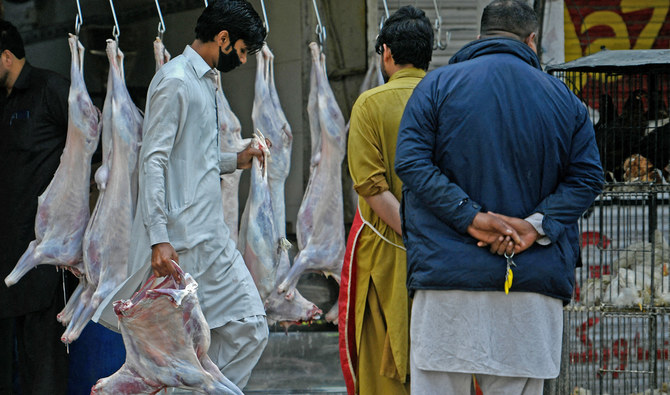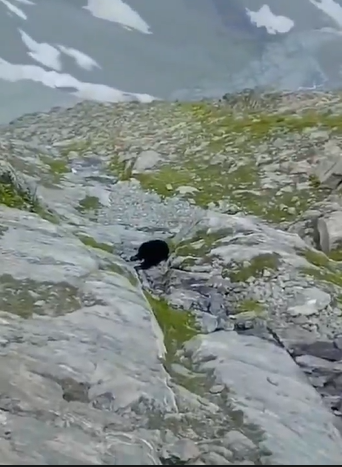KARACHI: Pakistan has geared up diplomatic efforts to mitigate the impact of a temporary ban on meat exports by Saudi Arabia after an outbreak of lumpy skin disease (LSD) among animals in Sindh which prompted the authorities to launch a major vaccination program, officials said on Sunday.
Last week, the Saudi foreign ministry said in a letter the kingdom had decided to impose a temporary ban on importing bovine from Pakistan due to the disease as a “precautionary measure for public interest.”
Pakistani officials said, however, they were confident the ban would soon be removed since the authorities were taking all necessary measures to eradicate the disease.
“This disease is limited to some areas in Sindh and other areas are safe,” Azhar Ali Dahar, minister (trade and investment) at the Pakistan embassy in Riyadh, told Arab News. “The Saudi authorities have put a temporary ban and they are closely monitoring this issue.”
“Now, the government of Pakistan has officially requested [its] trade mission [in Riyadh] to brief the Saudi Food and Drug Authority that other areas and provinces are safe,” he continued. “The animal quarantine department is ensuring safe slaughtering as per Saudi standards for export to Saudi Arabia. Therefore, the Saudi government must lift ban on red meat from Pakistan from safe areas.”
Last September, The Organic Meat Company (TOMCL), a Karachi-based export firm, secured a $1 million contract to supply frozen boneless meat to the kingdom for 10 months. Under the contract the company had to export 250 metric tons of meat during the course of the contract.
“The shipments are still moving out and still being cleared,” Faisal Husain, CEO and founder of TOMCL, told Arab News.
He said his company adopted all standard operating procedures (SOPs) to ensure the health of animals at the facilities before slaughtering them for export.
“Health certificates themselves are confirmation of the SOPs and quality standards on bovine/ovine issued by relevant government quarantine departments,” he said. “In any case, if a foreign authority requires further validation from our relevant ministries, it is their right to have it.”
Asked about the impact of the ban, he said it would not affect the company’s overall performance.
“For our company specifically, contract-based frozen boneless meat to Saudi Arabia is less than 2.5 percent of our total volume. This should not affect adversely the company’s performance,” he added.
In Pakistan, LSD was first detected in November last year in Jamshoro district of Sindh province.
The disease has so far affected about 35,415 cows in Sindh province and killed 389 of them. However, 20,746 animals have also recovered from the disease, according to the official data shared on April 10.
“We have increased the vaccination of animals in Sindh province and inoculated 324,298 animals by Sunday,” Dr. Nazeer Hussain Kalhoro, director general of the provincial livestock department, told Arab News.
Confident to contain the disease, the authorities in Sindh said they had vaccinated 136,233 animals in the last two days alone and were planning to target four million animals through is immunization campaign within two months.
“LSD is like the coronavirus,” Kalhoro said. “Until 80 percent of animal population is not vaccinated, it will continue to pose a threat. We are targeting to vaccinate four million animals by [the Muslim festival of] Eid [in which animals are sacrificed].”
According to the Sindh livestock department, LSD cases are only reported in cows, not buffaloes or other animals.
It also maintains the disease has not affected any humans.
LSD is a viral disease which was first observed as an epidemic in Zambia in 1929. The virus is transmitted by blood-feeding insects, such as mosquitoes and ticks.
The virus causes fever, enlarged superficial lymph nodes and multiple nodules on the skin and mucous membranes of animals.

















